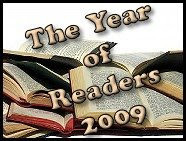I've decided to list, with a brief explanation, my personal top 10 books of 2008. These are books that I read in 2008, but they could have been published at any time. I list them in the order that I read them, from first to last, this doesn't imply that one was better than another.
Donald Hall's Father's Playing Catch with Sons: Essays on Sport [Mostly Baseball]
This book really surprised me, more poets should write about sports. His essays on baseball, and his own life were really wonderful. If you enjoy professional sports, you will find in these essays someone who really understands their appeal, and if you don't enjoy professional sports, this may help you to understand why others do. I liked this so much that I went out and read one of his poetry collections too, which was excellent.
Alexandre Dumas' The Three Musketeers translated by Richard Pevear
I've been a Dumas fan since I first read a translation of The Three Musketeers in Elementary school and I've read a number of his other books since. This was by far the best translation I've read of his work.
Junot Diaz' The Brief Wondrous Life of Oscar Wao
I think this made a lot of people's lists for 2008, and absolutely worthy of the Pulitzer. I was a bit of a nerd in High School and College myself, which may have helped me get some of the nerdier references. Some people have complained that all of the Spanish that Diaz mixes in makes it hard to follow, but I wasn't bothered by it, though I did look up the odd word. The story is heartbreaking and powerful. I also love interesting narrators, and Yunior is excellent.
Michael Chabon's The Yiddish Policeman's Union
I'd wanted to read this from the moment that I first heard of it. I loved The Amazing Adventures of Kavalier and Clay, and I'm also a big fan of hard boiled detective fiction like Chandler and Hammett (more Hammett). Chabon's creation of a believable Jewish state in Alaska was an impressive achievement, and I enjoyed exploring that world, the strange, apocalyptic plot was also exciting and poignant.
Hugh Nissenson's The Days of Awe
I have had to read this since I saw it on a bookstore shelf. Nissenson lives in the neighborhood where I grew up, and as a result this book about Upper West Siders in the lead up to, and then following September 11th, was very poignant for me. I really liked his writing style, and the combination of religion, secularism, and mythology that pervades the lives of the characters.
Howard Zinn's A People's History of the United States 1492-Present
To say that I loved this book would be overstating it, but it was one of the more important books that I read this year. I particularly valued the sheer depth of material covered. This book is an excellent accompaniment to any study of American history as Zinn provides a perspective that is often missing. While I am a big fan of non-traditional uses of Graphic storytelling, Zinn's comic book A People's History of American Empire is not an effective substitute for this book, though it can be a fun gloss.
George Simenon's The Man Who Watched Trains Go By
This is partly to symbolize my discovery of Simenon in 2008. He has quickly become one of my favorite authors, and I read a half dozen of his books. This is one of what Simenon referred to as his romans durs, which are deeply psychological novels. The cold detachment with which he shows one man's transition from bored upstanding middle class business man to wanted murderer is spectacularly effective.
A.M. Homes' This Book Will Save Your Life
This book didn't save my life, but I really enjoyed it. The story of a man slowly rediscovering his own life was a lot of fun. Richard Novak seemed to be almost as unfamiliar with his life as the reader, and as a result, we discovered it with him.
Mark Kurlansky's 1968: The Year That Rocked the World
When I read Kurlansky, he's virtually guaranteed to end up on my year end best list. This is the most political and contemporary book of his that I've read, and I loved it. He has the excellent ability to explain history in a readable and memorable fashion. I can't help but feel that this book colored my appreciation of Zinn, leaving me to wish that he wrote a little bit more like Kurlansky. Of course, Kurlansky covered one year, and Zinn covered over 500, so it's a bit of an apples and oranges situation.
Aravind Adiga's The White Tiger
Somehow this year I read the two major literary prize winning books of 2008, between this and Diaz. It's hard to put my finger on exactly why, but it feels right that they both won their awards in the same year. I like untrustworthy first person narrators, and quirky narrators, and Balram Halwai is both. His story of his life is compelling and his view of India is very different from others that I have seen.
Monday, January 5, 2009
Top 10 of 2008
Subscribe to:
Post Comments (Atom)

2 comments:
Can I borrow your copy of Oscar Wao at some point? I keep meaning to tackle that. Also, Howard Zinn = love.
Also, this is Katie. I apparently have a Blogger account I don't recall setting up?
Post a Comment